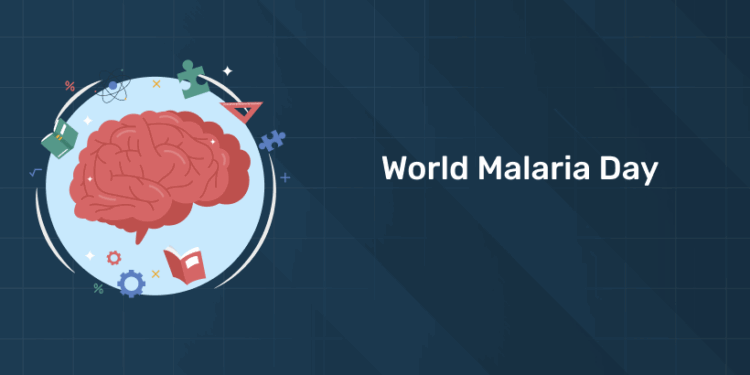Table of Contents
World Malaria Day is observed annually on April 25th to raise awareness about the global fight against malaria and the steps being taken to eliminate it. The day was established by the World Health Organization (WHO) in 2007, aiming to highlight the importance of malaria prevention, control, and treatment. Malaria remains one of the most deadly infectious diseases worldwide, with millions of people affected each year, particularly in sub-Saharan Africa. World Malaria Day serves as a reminder of the ongoing challenges that malaria presents, despite the tremendous progress made in combating the disease. The observance calls for increased global action, collaboration, and resources to continue the fight against malaria, with the ultimate goal of eradicating the disease once and for all.
On World Malaria Day, the focus is not only on raising awareness about the impacts of malaria but also on the innovative solutions that can help end the disease. Efforts such as the distribution of insecticide-treated bed nets, advancements in antimalarial treatments, and the introduction of vaccines are playing a pivotal role in reducing malaria transmission. Governments, international organizations, and local communities come together to promote these initiatives, encourage more research, and increase funding for malaria eradication programs. The fight against malaria is ongoing, and World Malaria Day plays a crucial role in bringing attention to the need for continued vigilance, investment, and global solidarity in the effort to eliminate this preventable disease. Let’s look into the World Malaria Day 2025 – history, theme, and quiz.
World Malaria Day 2025 Date – April 25
In this article readers can get a glimpse on
- History and Objective of World Malaria Day
- World Malaria Day Theme 2025
- World Malaria Day Quiz
History and Objective of World Malaria Day
1: Who was the first woman President of India?
World Malaria Day, observed annually on April 25th, was established by the World Health Organization (WHO) in 2007. The purpose of the day is to raise awareness about the global burden of malaria, a preventable yet deadly disease that continues to affect millions of people worldwide. This day aims to highlight the importance of preventing, treating, and ultimately eradicating malaria. It also encourages greater global cooperation and funding for malaria control programs and research, emphasizing the need for continued action in the fight against the disease.
The origins of this day can be traced back to the Roll Back Malaria Partnership, which was launched in 1998 by organizations such as WHO, UNICEF, and the World Bank. This initiative was created to address the widespread impact of malaria, particularly in sub-Saharan Africa, and to reduce the disease’s burden on communities and healthcare systems. Malaria, caused by the Plasmodium parasite transmitted through infected mosquito bites, remains one of the world’s most deadly diseases, despite significant progress in prevention and treatment.
April 25th was chosen as the official date for World Malaria Day to honor the anniversary of the signing of the Abuja Declaration in 2000. The declaration was made by African leaders who committed to taking decisive actions to fight malaria and improve health in their countries. The decision to observe this day was a collective recognition of the ongoing battle against malaria and the need for continued political and financial commitment to its eradication. This declaration laid the groundwork for many of the international malaria control initiatives that followed.
This day serves as an opportunity to reflect on the progress made in reducing malaria’s global impact, but it also reminds the world that much work remains. While the number of malaria cases and deaths has decreased in many parts of the world, the disease continues to be a major public health issue, particularly in impoverished regions. The day encourages the development and distribution of effective preventive tools, such as insecticide-treated bed nets and antimalarial treatments, and supports ongoing research for new vaccines and therapies. Through continued awareness and global collaboration, the goal of eradicating malaria can eventually be achieved.
Free UPSKILLING Courses!
Take your first step toward mastering in-demand skills, acing interviews, and securing top-tier jobs with Entri's free upskilling courses.
Start Learning!When was World Malaria Day Celebrated first?
World Malaria Day is an annual ceremony held on April 25 to raise awareness of the universal effort to control and eventually eradicate malaria. This day was first held in the year 2008. African governments observed Africa Malaria Day since 2001, and they developed World Malaria Day from it. This day is observed on 25 April each year to make people aware of the global burden of malaria, a preventable and treatable disease that puts half the globe at risk and kills one child every two minutes.
Led by the RBM Company to End Malaria, This day educates citizens in malaria hit countries on simple actions they can take to prevent the disease, highlights the impact of investments in ending malaria, and engages the community, national and global leaders to ensure ending malaria remains a priority on the global program. In 2018, these investments managed to save almost 600,000 lives and prevented nearly 100 million malaria cases.
About the RBM Partnership to End Malaria
The RBM Partnership to End Malaria is the largest platform for synchronized action against malaria. Originally recognized as Roll Back Malaria (RBM) Partnership in 1998, it mobilizes for action and resources and forges consensus among partners. The Partnership consists of many partners, including malaria-endemic countries, the private sector, non-governmental and community-based organizations, their bilateral and multilateral development partners, foundations, and research and academic institutions.
World Malaria Day Theme 2025
The theme for World Malaria Day 2025, “Malaria Ends With Us: Reinvest, Reimagine, Reignite,” highlights the need for renewed global commitment in the fight against malaria. It emphasizes that ending malaria requires collective action from governments, organizations, and individuals. The theme calls for more investment in research, healthcare, and preventive measures to strengthen the global response to malaria. It also encourages rethinking strategies and adopting innovative solutions to eliminate the disease once and for all.
This year’s theme also focuses on reigniting global enthusiasm and dedication to malaria eradication. It stresses the importance of building on successful interventions while exploring new approaches, like malaria vaccines and improved treatments. “Reinvest, Reimagine, Reignite” serves as a call for continued innovation and collaboration to combat malaria. It reminds us that tackling this disease requires both new ideas and ongoing commitment, as we move towards a malaria-free world.
The theme also underscores the importance of strengthening global partnerships and fostering collaboration between governments, organizations, and communities. It highlights the need to support countries most affected by malaria and ensure effective allocation of resources to achieve long-term solutions. By prioritizing malaria eradication, the world can make significant progress in improving public health, reducing poverty, and advancing sustainable development. “Malaria Ends With Us” serves as a powerful reminder that collective action, investment, and innovation are key to achieving a malaria-free future for all.
Free UPSKILLING Courses!
Take your first step toward mastering in-demand skills, acing interviews, and securing top-tier jobs with Entri's free upskilling courses.
Start Learning!World Malaria Day Quiz 2025
What is the primary cause of malaria?
A) Bacteria
B) Parasites
C) Viruses
A) Aedes
B) Anopheles
C) Culex
3. What year was World Malaria Day first observed?
A) 2000
B) 2005
C) 2007
A) Asia
B) Africa
C) South America
5. How is malaria typically treated?
A) Antibiotics
B) Antimalarial drugs
C) Painkillers
A) Vaccination
B) Insecticide-treated bed nets
C) Surgery
A) 50%
B) 75%
C) 90%
A) 50%
B) 70%
C) 90%
A) World Health Organization (WHO)
B) Centers for Disease Control and Prevention (CDC)
C) United Nations Children’s Fund (UNICEF)
Want More Engaging Questions?
Download our FREE PDF packed with insightful quiz questions to test your knowledge!
🔽 Click below to get your free copy now! 🔽
World Malaria Day Quiz 2025 PDF
World Malaria Day reminds us of the ongoing global effort to eliminate malaria. People have made progress, but challenges remain. Key measures like mosquito nets and antimalarial treatments are crucial in reducing malaria cases. The goal is to continue global cooperation and investment in malaria eradication programs.
Although we have made significant progress, we must do much more to end malaria globally. Continued research, funding, and international collaboration are vital. World Malaria Day calls for renewed commitment to this critical public health issue. It serves as a reminder that a malaria-free world is within reach with sustained effort.
Free UPSKILLING Courses!
Take your first step toward mastering in-demand skills, acing interviews, and securing top-tier jobs with Entri's free upskilling courses.
Start Learning!Frequently Asked Questions
What is World Malaria Day?
World Malaria Day, observed annually on April 25th, aims to raise awareness about malaria prevention and control. It highlights the global efforts to eliminate malaria and the progress made in reducing its impact. The day serves as a call to action for governments, organizations, and individuals to join the fight against malaria. It emphasizes the need for continued investment in malaria research and healthcare systems.
Why is World Malaria Day important?
World Malaria Day is crucial because malaria continues to be a major public health challenge in many parts of the world. It provides an opportunity to raise awareness about the disease and its impact on global health. The day encourages governments and organizations to increase funding and support for malaria control programs. It also promotes global cooperation in efforts to eliminate malaria for good.
How is World Malaria Day observed?
World Malaria Day is observed through various activities, including educational campaigns, community events, and media outreach. Governments, non-governmental organizations (NGOs), and health experts participate in raising awareness. In many countries, health professionals provide free malaria testing and treatment. The day is also marked by conferences and discussions on global strategies to combat malaria.
What progress has been made in the fight against malaria?
Significant progress has been made in reducing malaria cases and deaths over the past two decades. The use of insecticide-treated bed nets, indoor spraying, and antimalarial drugs has helped lower transmission rates. However, malaria remains prevalent in many sub-Saharan African countries. Continued research and innovation in malaria vaccines and treatments are essential to ending the disease.
What are the symptoms of malaria?
Malaria symptoms typically include fever, chills, headache, nausea, and vomiting. In severe cases, it can lead to anemia, organ failure, and death. Symptoms usually appear 10-15 days after being bitten by an infected mosquito. Early diagnosis and treatment are crucial for preventing complications and fatalities.
How is malaria transmitted?
Malaria is transmitted through the bites of infected female Anopheles mosquitoes. These mosquitoes carry the Plasmodium parasite, which causes malaria. When an infected mosquito bites a person, the parasite enters the bloodstream. The parasite then infects the liver and red blood cells, causing the symptoms of malaria.
Can malaria be prevented?
Yes, malaria can be prevented through various measures, including the use of insecticide-treated bed nets, indoor spraying with insecticides, and antimalarial medications. In high-risk areas, travelers can take preventive drugs before and after visiting. Malaria prevention also includes eliminating mosquito breeding sites and using protective measures, such as repellents and mosquito nets. Vaccines like RTS,S are also being used as an additional preventive tool.
How can malaria be treated?
Malaria can be treated with antimalarial drugs, which vary depending on the type of malaria and its severity. The most common treatments include artemisinin-based combination therapies (ACTs). Early diagnosis and prompt treatment are essential for effective treatment and to prevent severe complications. In some cases, hospitalization and intravenous drugs may be required for severe malaria.
Who is most at risk for malaria?
Young children, pregnant women, and people with weakened immune systems are most at risk of severe malaria. People living in malaria-endemic areas, especially in sub-Saharan Africa, are also at higher risk. Malaria is less common in developed countries, but travelers to endemic areas can also be at risk. Preventive measures are essential for those traveling to high-risk regions.
What can be done to eliminate malaria?
Eliminating malaria requires continued investment in prevention, treatment, and research. Strengthening health systems, increasing access to antimalarial drugs, and promoting the use of insecticide-treated bed nets are key strategies. Global collaboration, including funding and political commitment, is crucial in the fight against malaria. Ongoing research for vaccines, treatments, and innovative prevention tools is essential for achieving malaria eradication.













